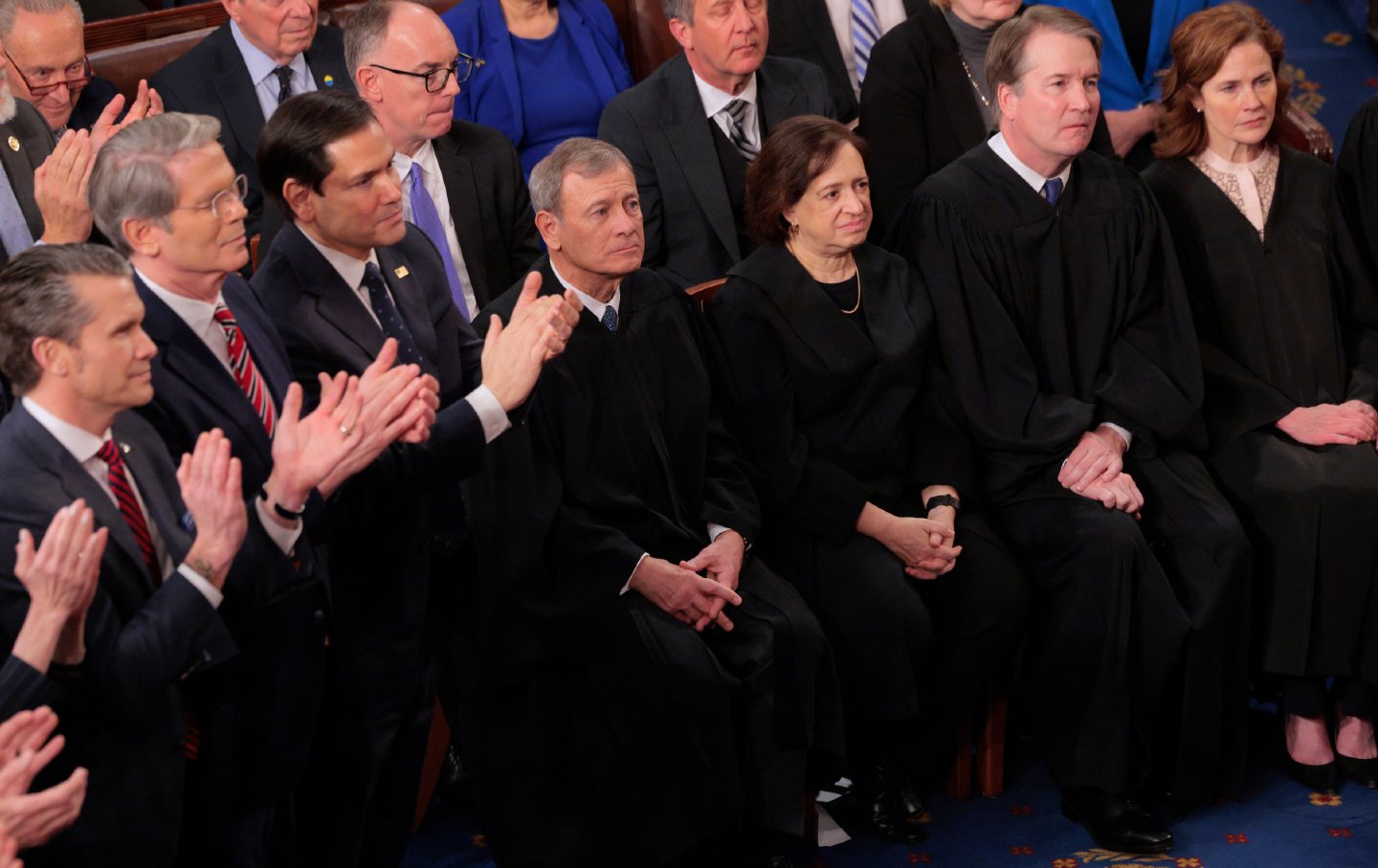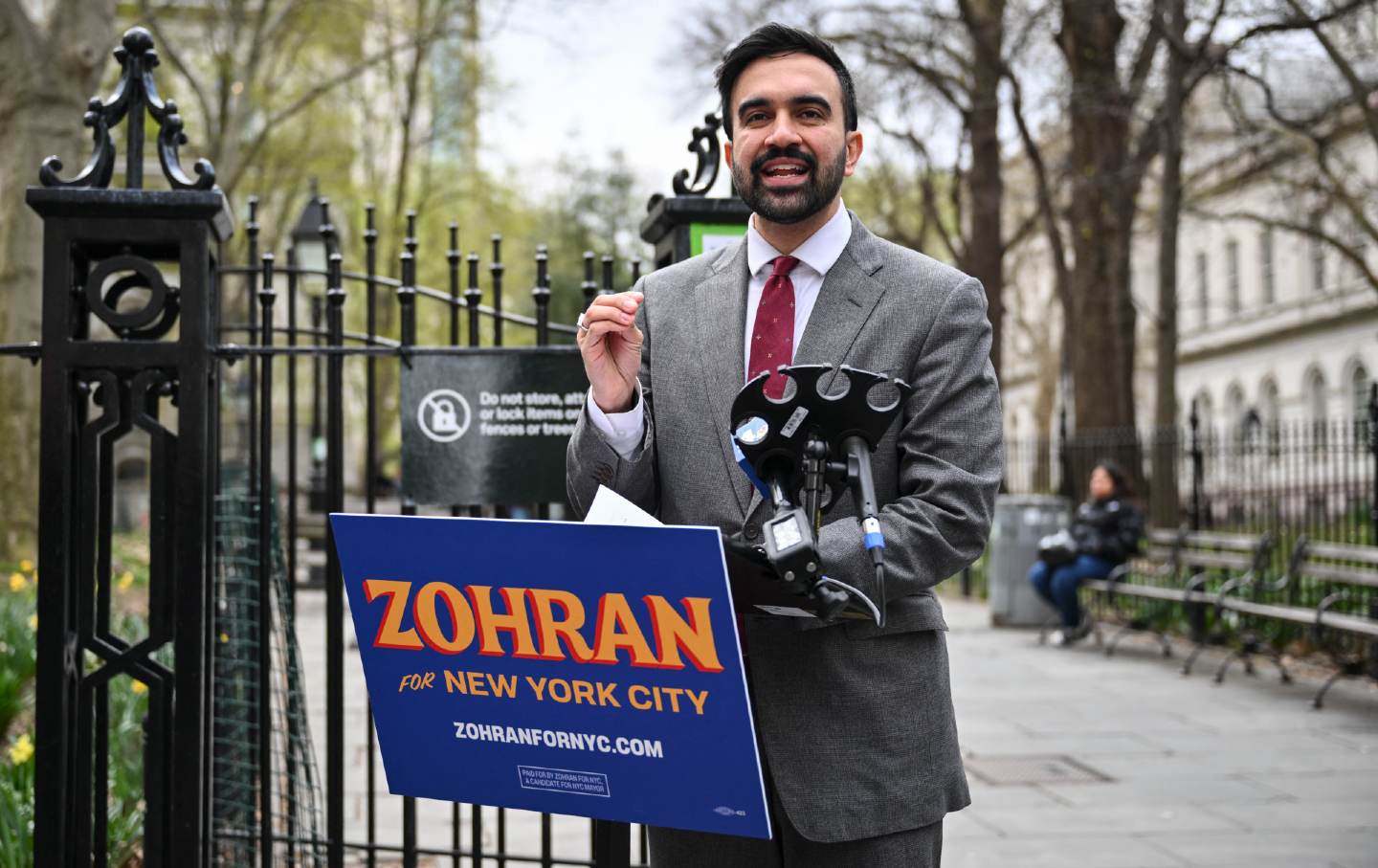Michigan’s Prison Crisis
The state, often considered a bastion of progressive policies, has some of the worst carceral instincts and politics.

Two weeks ago, I watched my colleague and friend stand straight-shouldered before a judge as she told him, with a stroke of her pen, that he was not worth anything to society for the next 17 years.
A person I love, held, shared dreams with, a person who worked three jobs and volunteered in his little time off, who had at least 20 people attend his sentencing, a dozen people at his trial, who had 19 letters of support from individuals and organizations across two states. Seventeen years, for possession with intent to deliver 56 grams of cocaine to a friend as an easy opportunity to make a little extra money.
Was it wrong? Yes. Was 17 years, 6,205 days living in a cage wrong? My God, can you imagine believing that? Have we lost all sense of what that means?
In Michigan, it seems we have. In fact, the criminal justice landscape here reflects some of the country’s worst carceral instincts and politics—and underscores how mass incarceration is not a red-state phenomenon. Michigan has one of the longest average criminal sentence lengths in the country. The disparity is driven by several factors, one of the largest being that, since 1998, Michigan has been one of two states that provide no ability to earn time off a sentence: no disciplinary credits, no productivity credits, no “good time.”

Michigan used to offer different forms of earned-time incentives, but a 1978 ballot initiative removed the majority of our “good time” credits, and then the 1994 Crime Bill provided financial kickbacks for states that adopted 100 percent “truth in sentencing”—a failed policy that requires people to serve every single moment of their original sentence, despite institutional behavior, achievements, and productive rehabilitation. This ushered in an era of mass incarceration in our state and throughout the country.
A friend of mine was just released after serving 28 years of a sentence of 32, but only because he was sentenced before “truth in sentencing” and was eligible to earn time off. In his final years inside, he witnessed the rapid deterioration of the prison environment, which he describes as “apocalyptic.” Persistent overcrowding and lack of staff—already at crisis level and worse after the pandemic—compounded by the overwhelming hopelessness of having no way out have produced untenable conditions inside the Michigan Department of Corrections.
As an organizer who has advocated for hundreds of incarcerated people across the nation, I know that hopelessness kills. It creates a culture of despondency, and fosters incidents of violence and substance use inside. And I’ve heard the same from the many people whose lives have been devastated by truth-in-sentencing laws.
“There is nothing to do,” my friend Justin told me over the prison phone line a few days ago. “So what do people do? Drugs. I’ve seen so many people develop addictions in here just trying to kill the time.” (His sentiments have been confirmed by the experiences of several people incarcerated at the one women’s prison in the state as well.) This isn’t good for the people incarcerated or the people working inside these facilities. That’s why so many of us—especially those who have been incarcerated themselves—are fighting to bring the “good time” credit back.
Shavonne Davis, an inside advocate for prison reform, has been incarcerated for over 20 years on a home invasion charge—and hasn’t had a disciplinary ticket since 2004. But “truth in sentencing” has robbed her of sharing final moments with her loved ones. In an appeal to state legislators, which she shared with me, she stated, “If Good Time was already within practice, I would have had the ability to be present with and hold my daughter, mom, grandma, and three aunts who have all passed within the last seven years.” There is nothing that can justify keeping Shavonne incarcerated for so much of her life, when she hasn’t walked down a wrong hallway in two decades. In nearly every other state, Shavonne would have long been home.
National public safety experts recently recommended expansion of earned-time incentives to shorten sentence lengths and create more space for effective rehabilitation and programming. Some states are following the research and expanding or creating additional earned-time-off policies. On the other hand, Michigan’s policymakers and leading prosecutors are doubling down on truth in sentencing in the name of supporting victims.
But “victims” are not a monolith: The bipartisan Alliance for Safety and Justice recently conducted a comprehensive survey in which 3 out of 4 victims report to be in support of incentive-based policies for people to earn time off their sentences. Prosecutors and supporters of truth-in-sentencing policies also fail to consider the massive statistical overlap between people who have been both victims of and responsible for crimes.
The state certainly didn’t consider those facts at my friend’s sentencing, as the judge and prosecutor scoffed at a comprehensive mitigation package full of traumatic descriptions of his past and, quite literally, threw it to the side. We don’t speak of the victims—of assault, abuse, childhood neglect, rape—who are currently incarcerated, many of them for crimes related to substance use, a quick way to ease the pain of all they’ve suffered.
Popular
“swipe left below to view more authors”Swipe →What’s the result of all of this? For one, an absolutely massive and untenable staffing crisis throughout the MDOC. The union representing correctional officers has highlighted disastrous understaffing within state prisons, complete with stomach-churning quotes from MDOC staff about mandatory overtime and its effect on their lives and health. We should all be appalled that Michiganders are working under such conditions. These are some of the highest paying jobs in the state a person can get without a college degree, and there are nearly 900 vacancies to date, the compounding effect of net losses every year. No one wants to work in a place that warehouses people that have no hope, no incentive to do better, and nothing to do but kill time.
“Just the thought of getting an early release from prison has a motivational effect that drives one towards rehabilitative classes that teach people to function in society as a productive citizen,” says Eddie Treadwell, a supporter of “good time” who has been incarcerated for 33 years. “If we can change the way that people think, then we could change the way in which they live.”
Another result is that Michigan, compared to the rest of the country, also spends the highest percentage of its budget on incarcerating people. We’ll spend $2.1 billion this year to house 32,000 incarcerated persons. It costs roughly $45,000 a year to incarcerate one person, and $4,000 a year to have someone on parole. The vast majority of that funding is on staff costs, and yet we somehow still find it impossible to retain employees (or complete the other urgent tasks of our state, like updating our infrastructure to be climate-resilient).
With these converging crises staring one another in the face, the solution, it would seem, is policy change that reduces these inflated sentences through earned credits and improves the culture and environment in prison, all while reducing the population and freeing up general funds. Who would argue against such a rational, evidence-based, and fiscally responsible policy, which has worked in nearly every other state? The Prosecuting Attorneys Association of Michigan and Attorney General Dana Nessel.
Make no mistake, if every single prosecutor or elected official in the country woke up tomorrow in a prison cell and had to spend one week there, the prison system would be changed overnight. It’s a fact that the people who make the majority of decisions about who should be locked in a cage know the least about what it means to be so, yet are the loudest opponents of policies, like “good time,” that are—for good reason—long-standing correctional best practices in a nation with the highest incarceration rate in the world.
Two weeks ago, I watched my friend get thrown into a prison system that is bursting at the seams and killing its population and employees alike. Every day, throughout the state, similar scenes play out in terrorizing repetition. In that Berrien County courtroom last month, there was no reason to be found. In Michigan, with a “good time” policy, perhaps we can begin to recover some.
Hold the powerful to account by supporting The Nation
The chaos and cruelty of the Trump administration reaches new lows each week.
Trump’s catastrophic “Liberation Day” has wreaked havoc on the world economy and set up yet another constitutional crisis at home. Plainclothes officers continue to abduct university students off the streets. So-called “enemy aliens” are flown abroad to a mega prison against the orders of the courts. And Signalgate promises to be the first of many incompetence scandals that expose the brutal violence at the core of the American empire.
At a time when elite universities, powerful law firms, and influential media outlets are capitulating to Trump’s intimidation, The Nation is more determined than ever before to hold the powerful to account.
In just the last month, we’ve published reporting on how Trump outsources his mass deportation agenda to other countries, exposed the administration’s appeal to obscure laws to carry out its repressive agenda, and amplified the voices of brave student activists targeted by universities.
We also continue to tell the stories of those who fight back against Trump and Musk, whether on the streets in growing protest movements, in town halls across the country, or in critical state elections—like Wisconsin’s recent state Supreme Court race—that provide a model for resisting Trumpism and prove that Musk can’t buy our democracy.
This is the journalism that matters in 2025. But we can’t do this without you. As a reader-supported publication, we rely on the support of generous donors. Please, help make our essential independent journalism possible with a donation today.
In solidarity,
The Editors
The Nation








